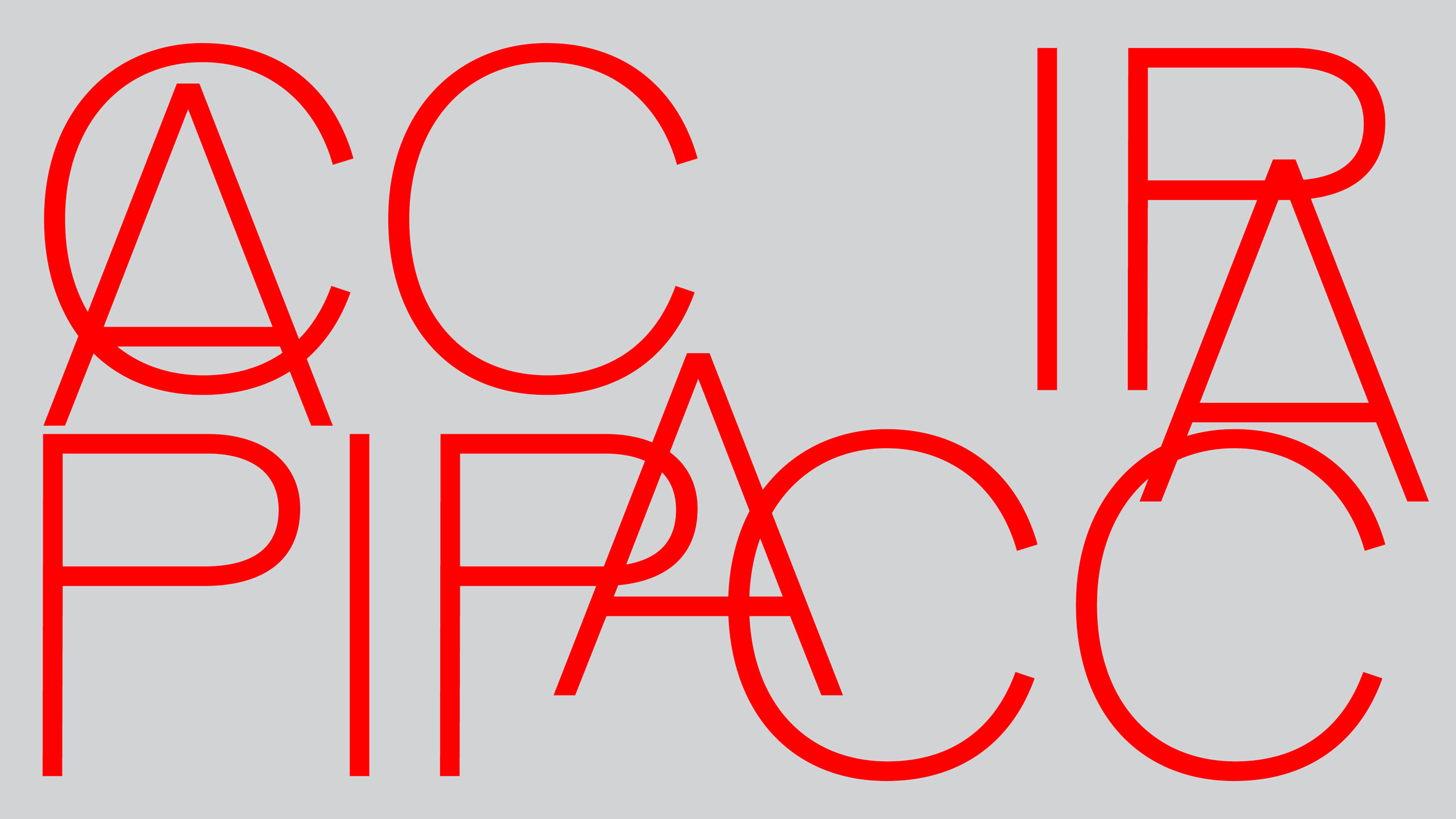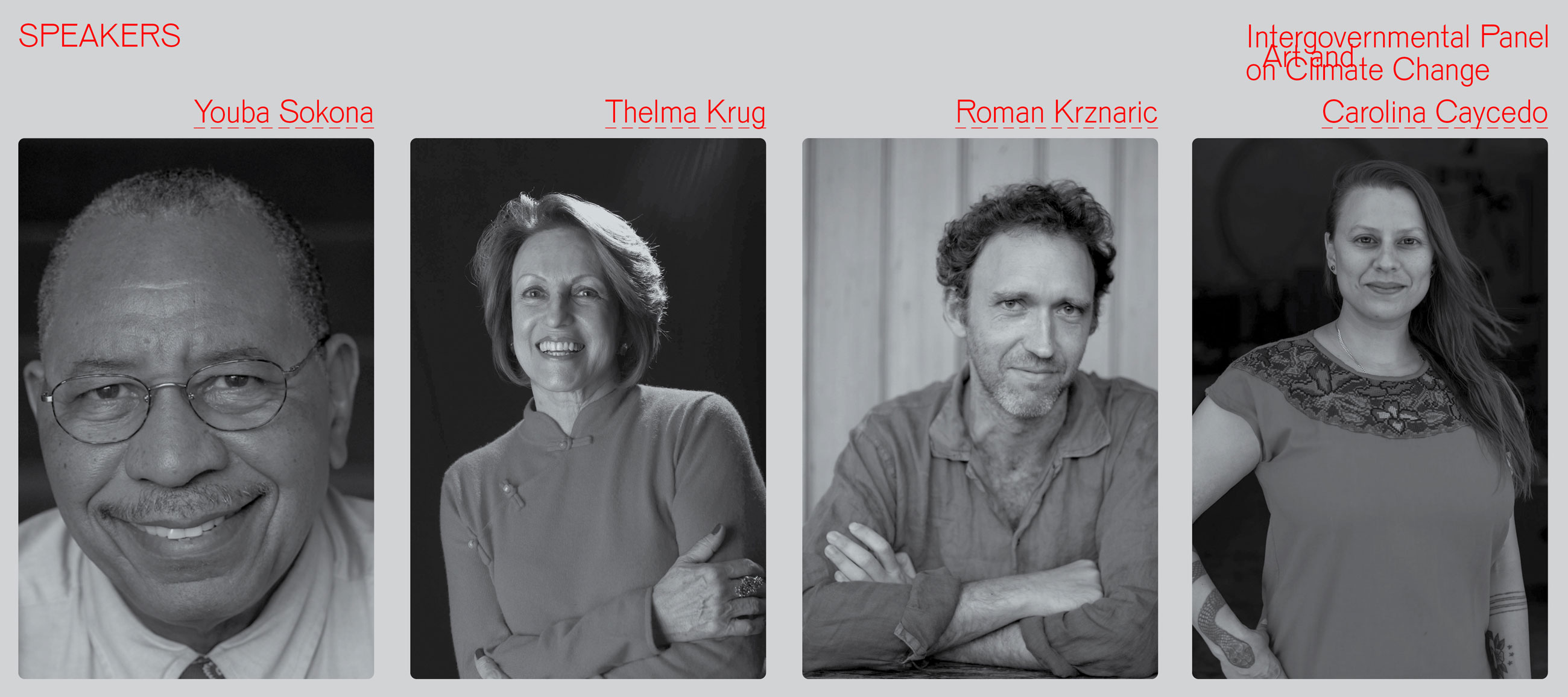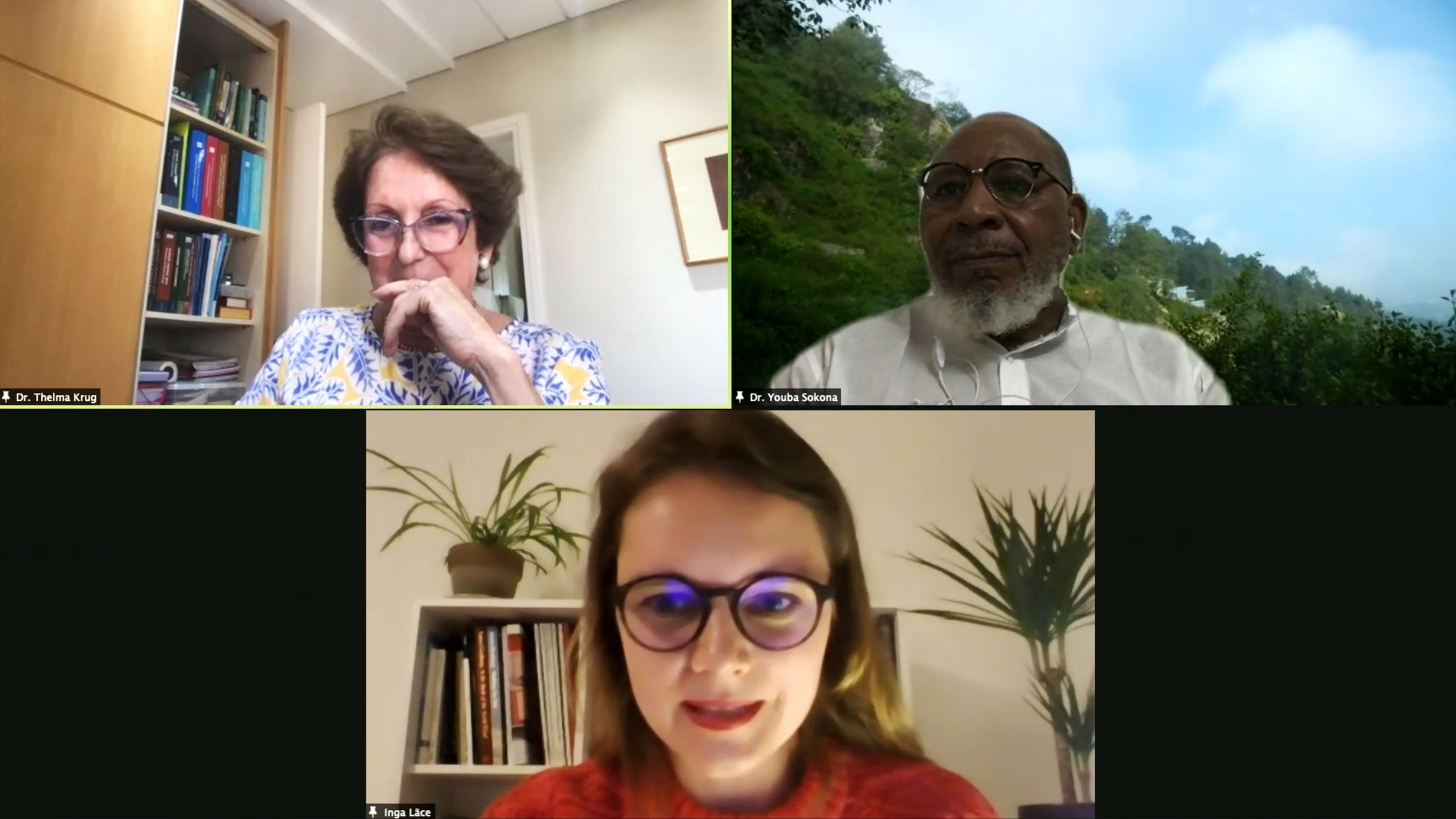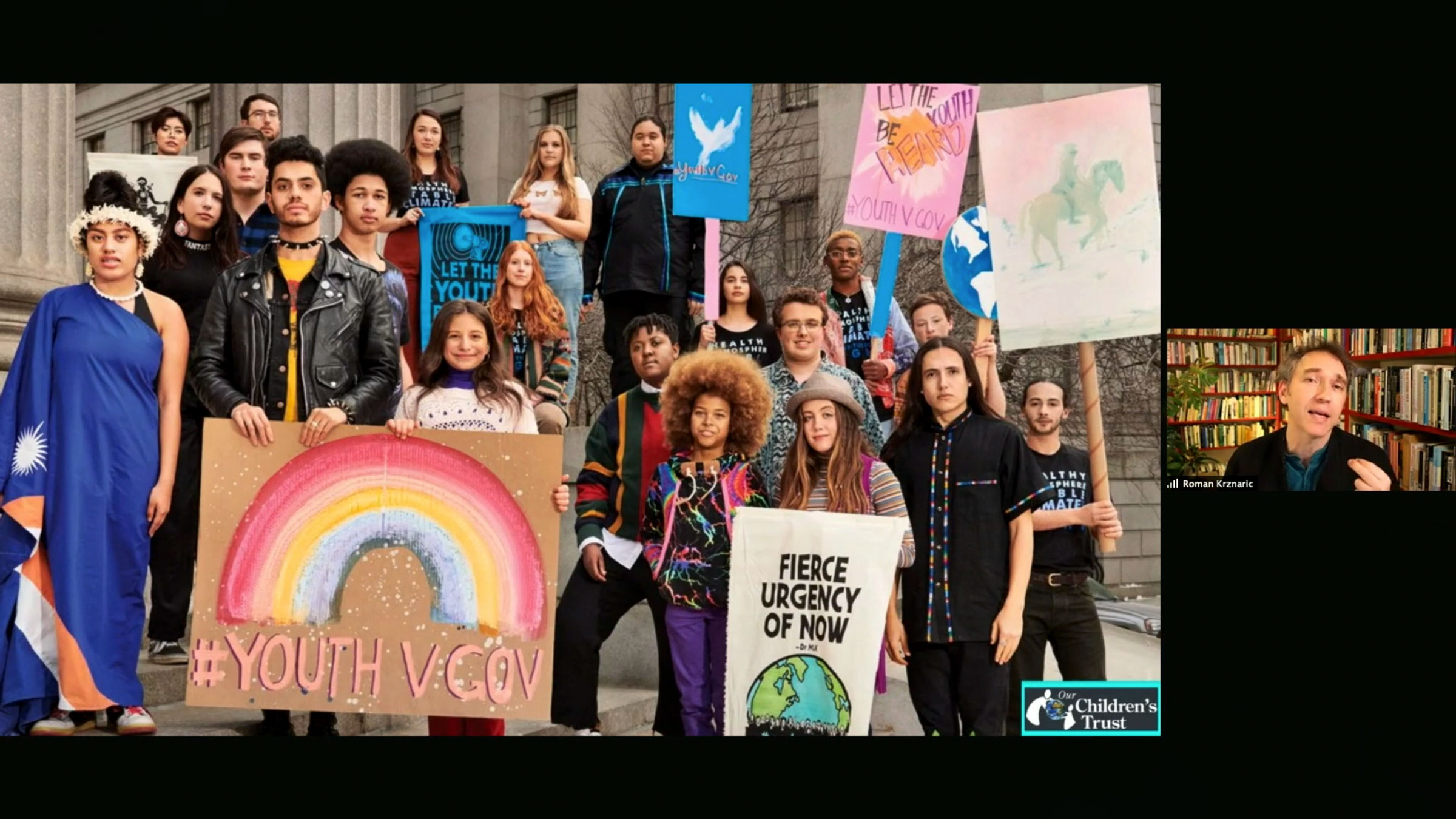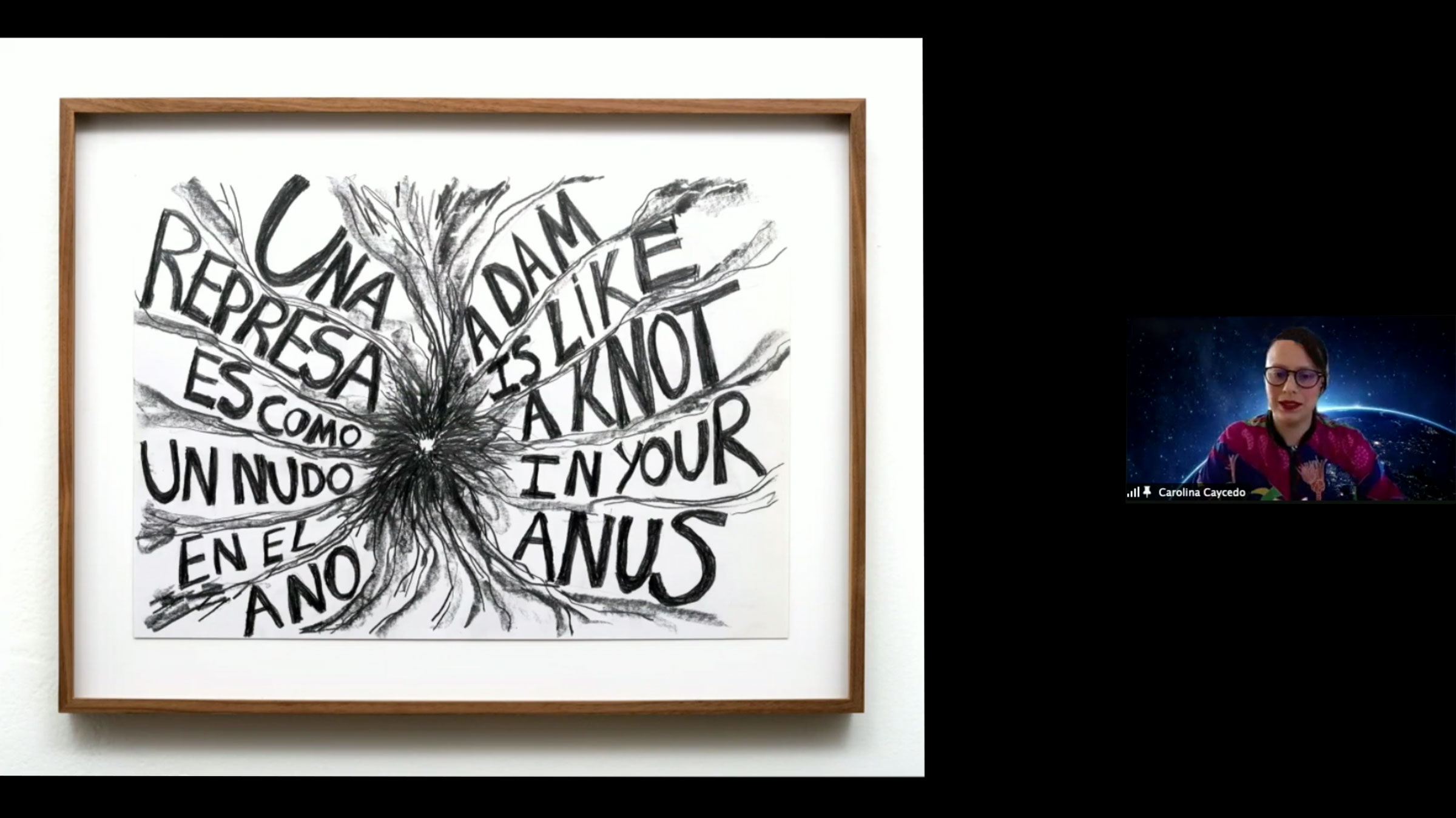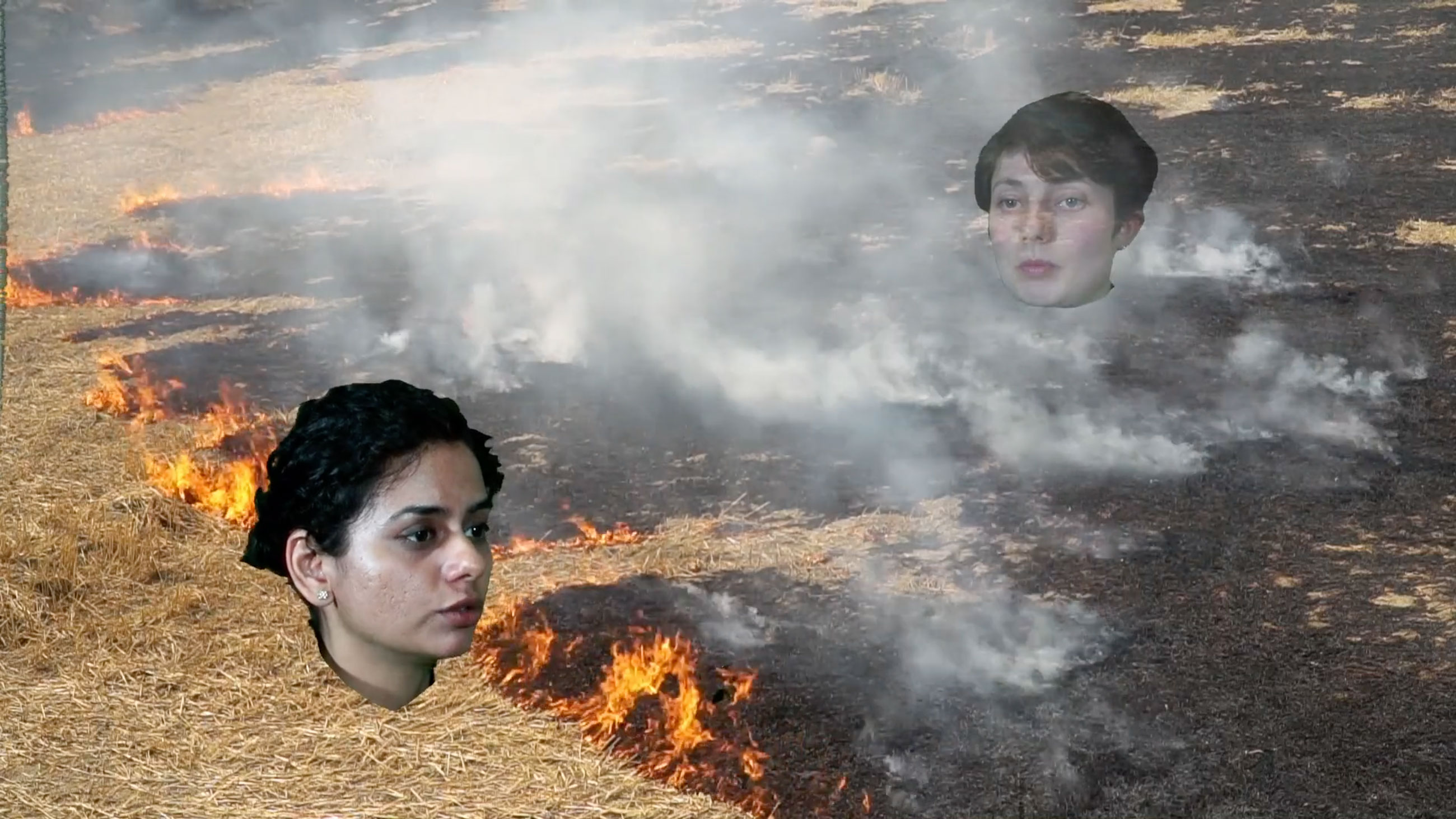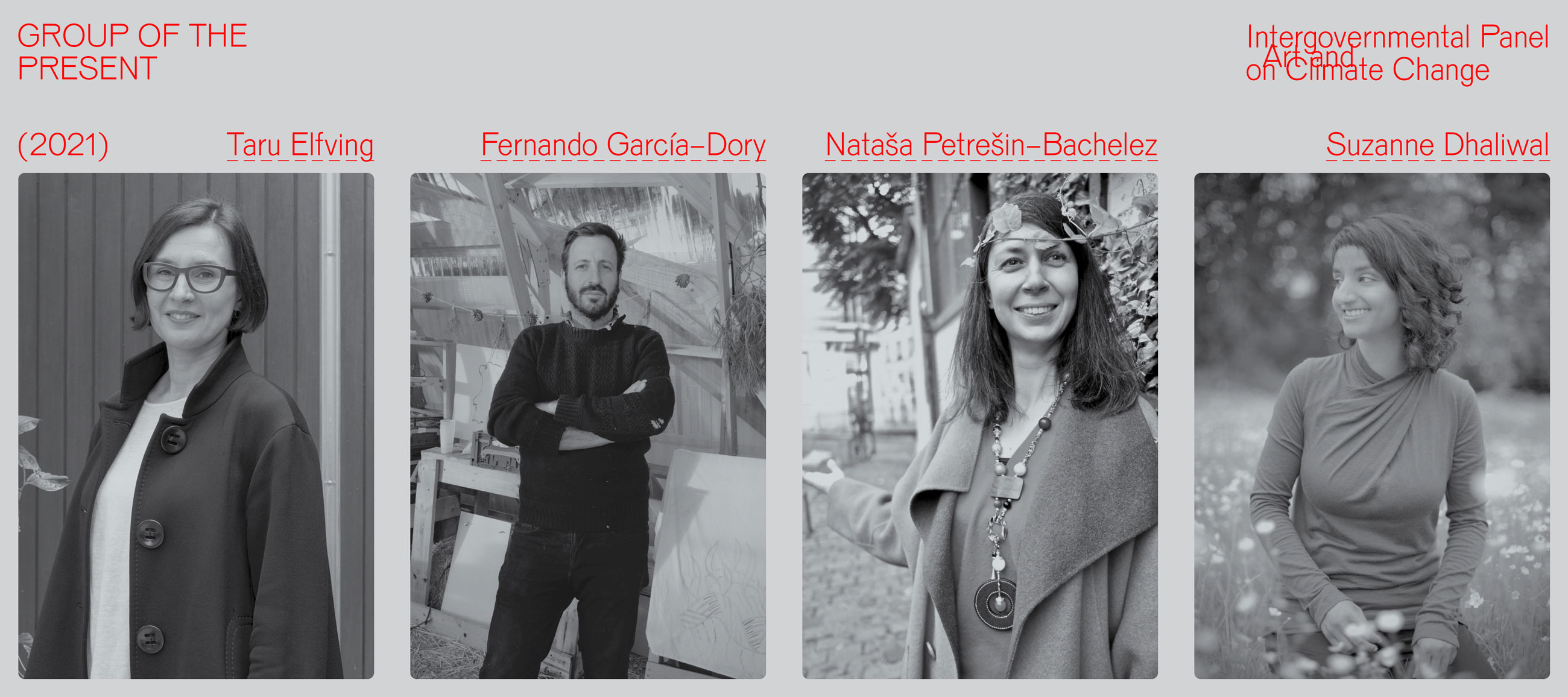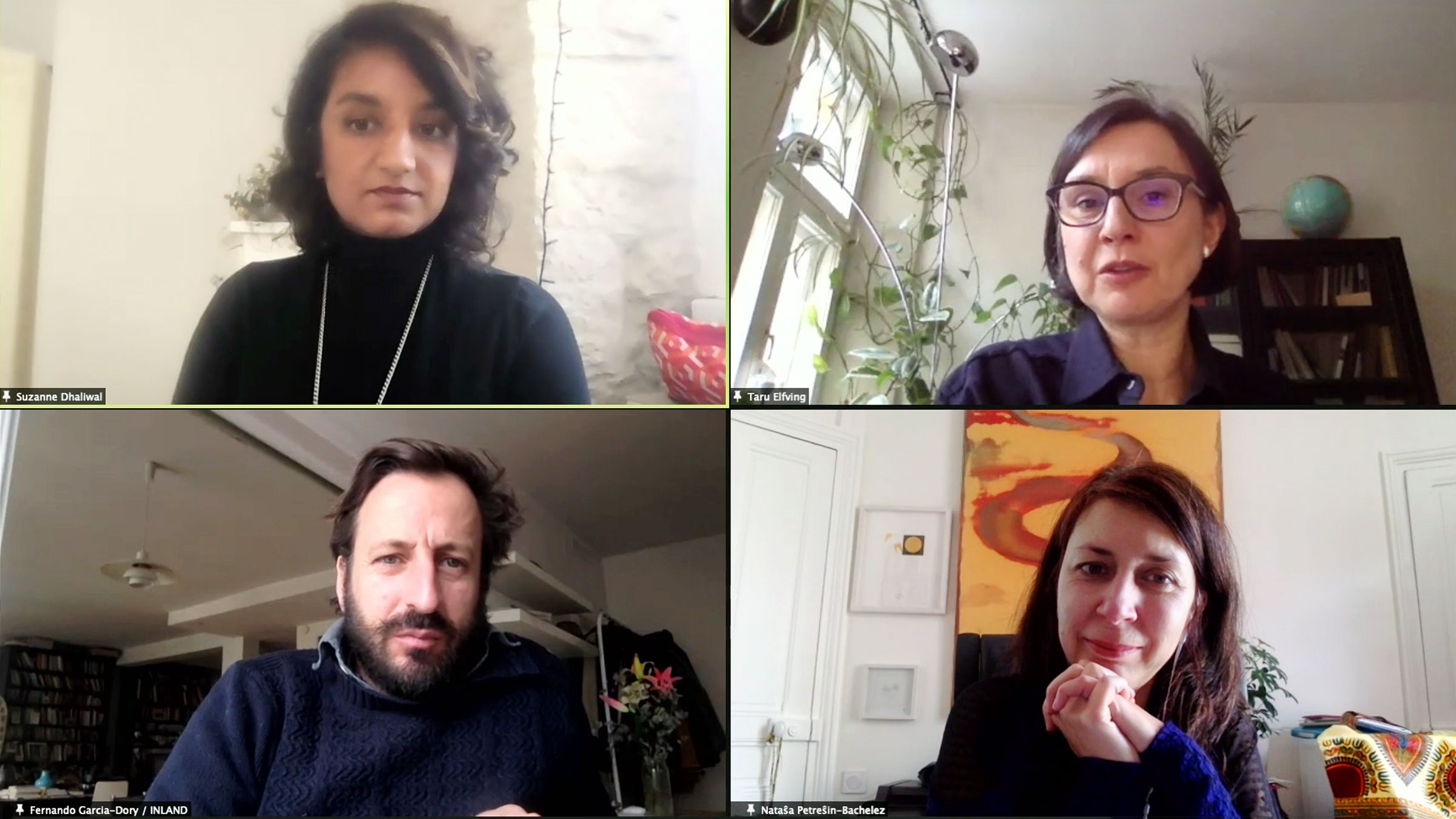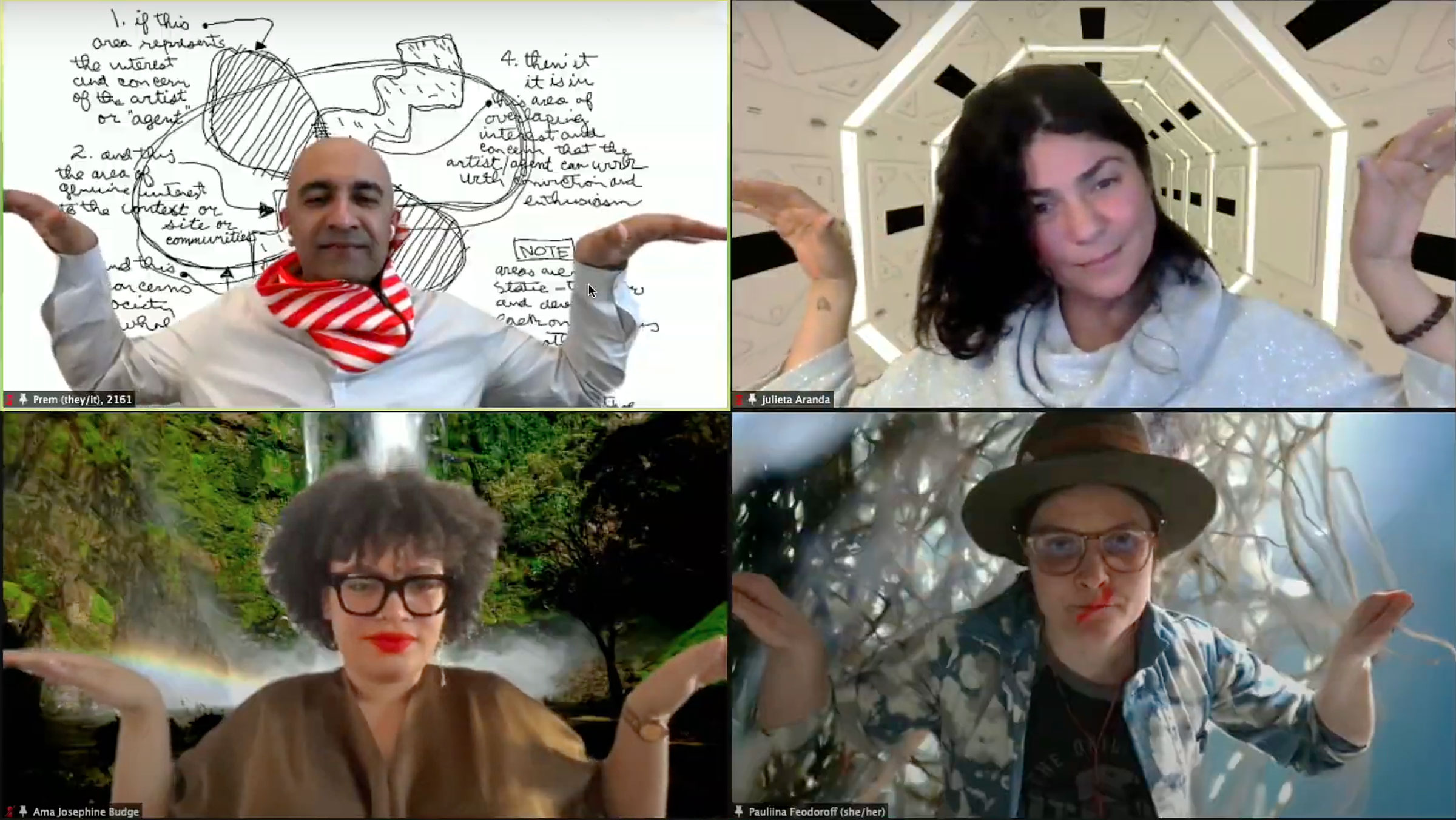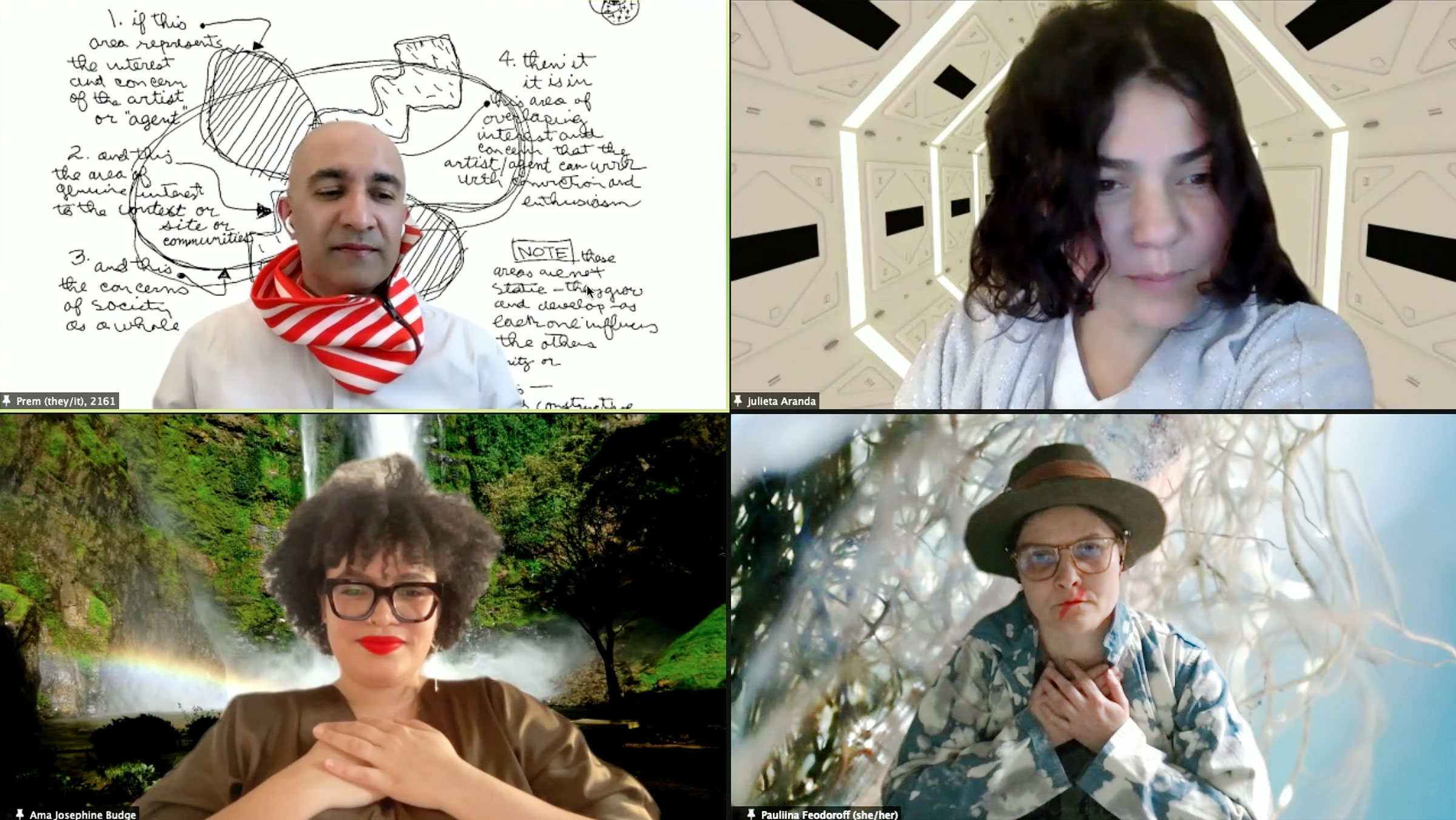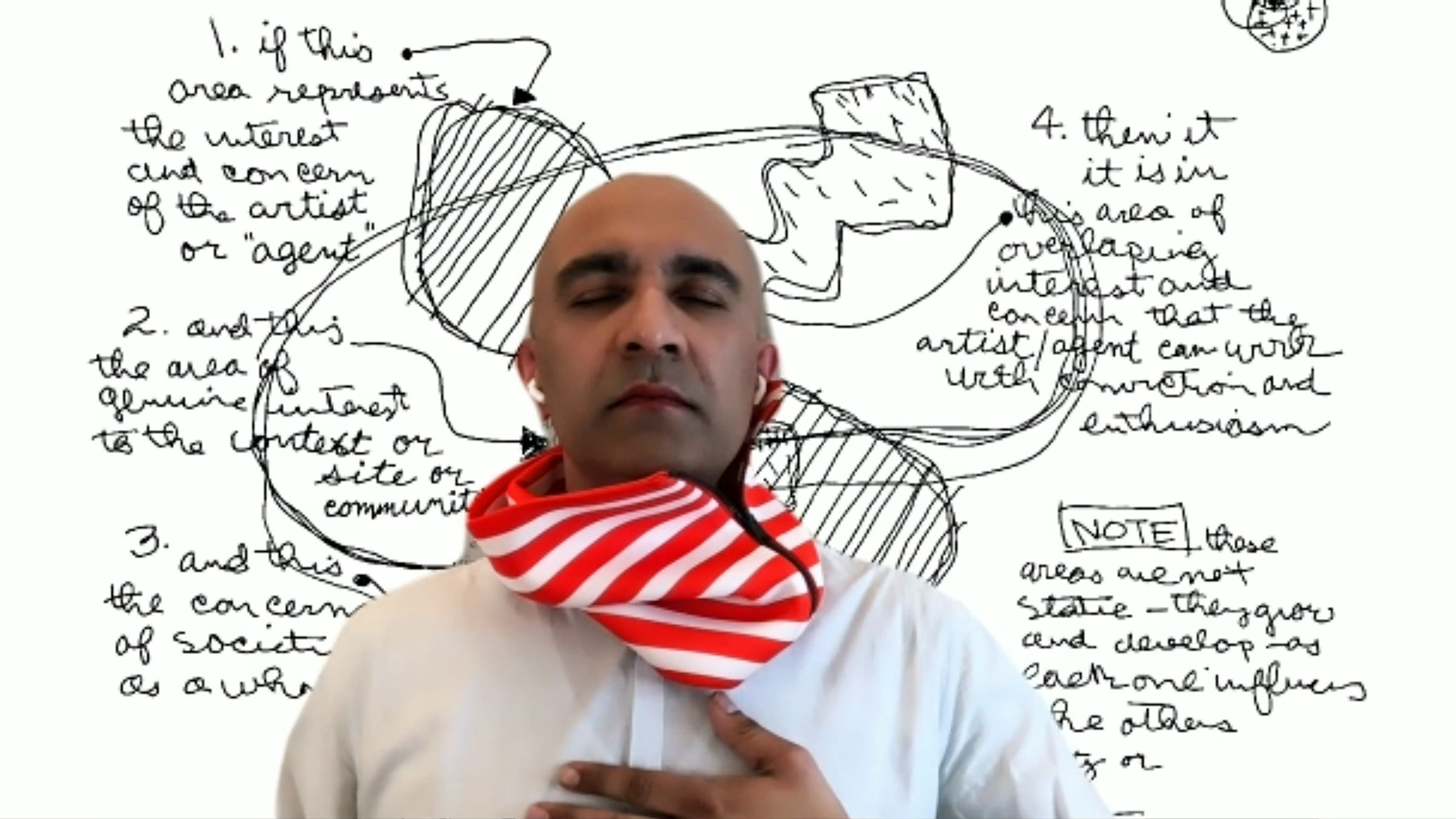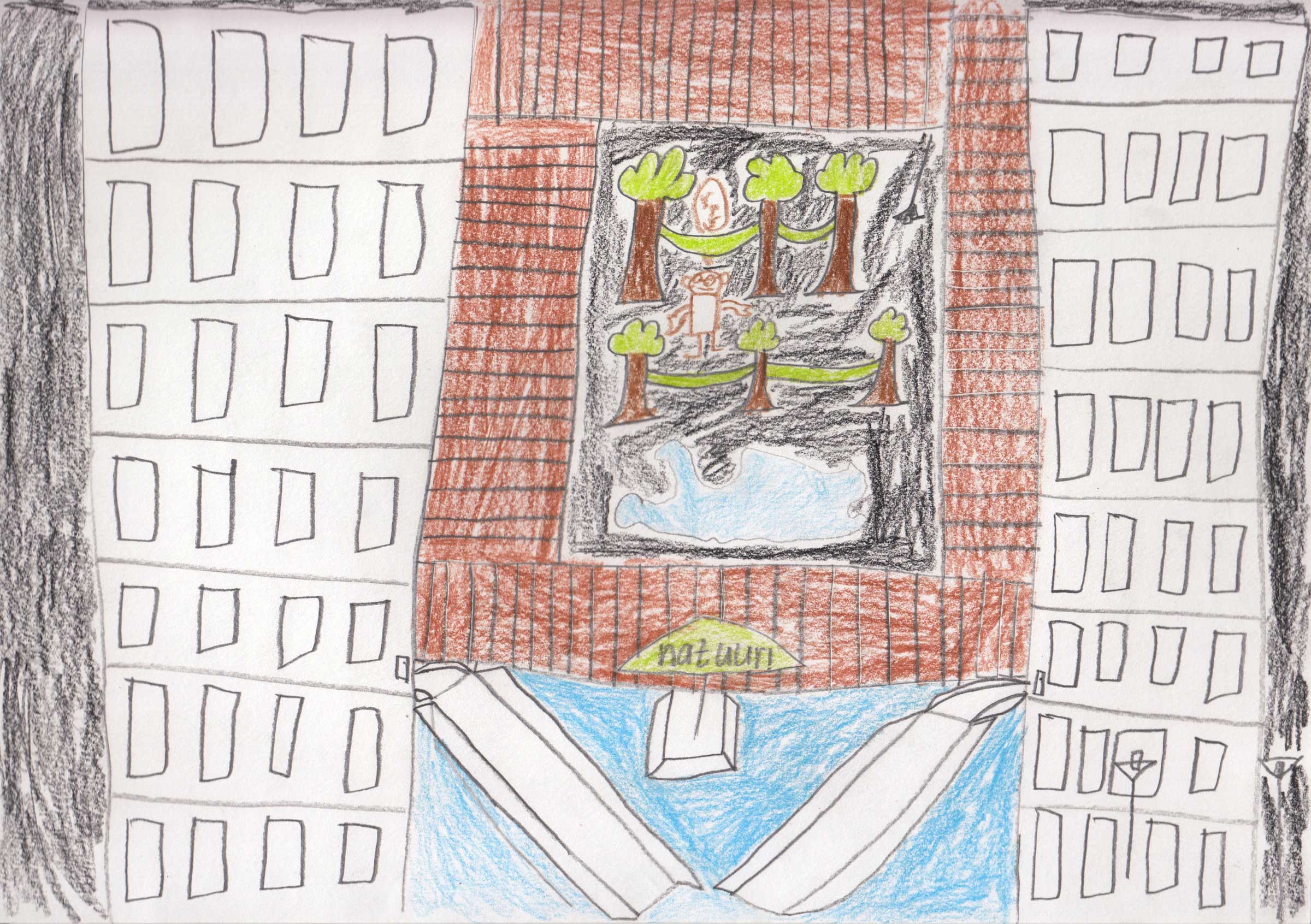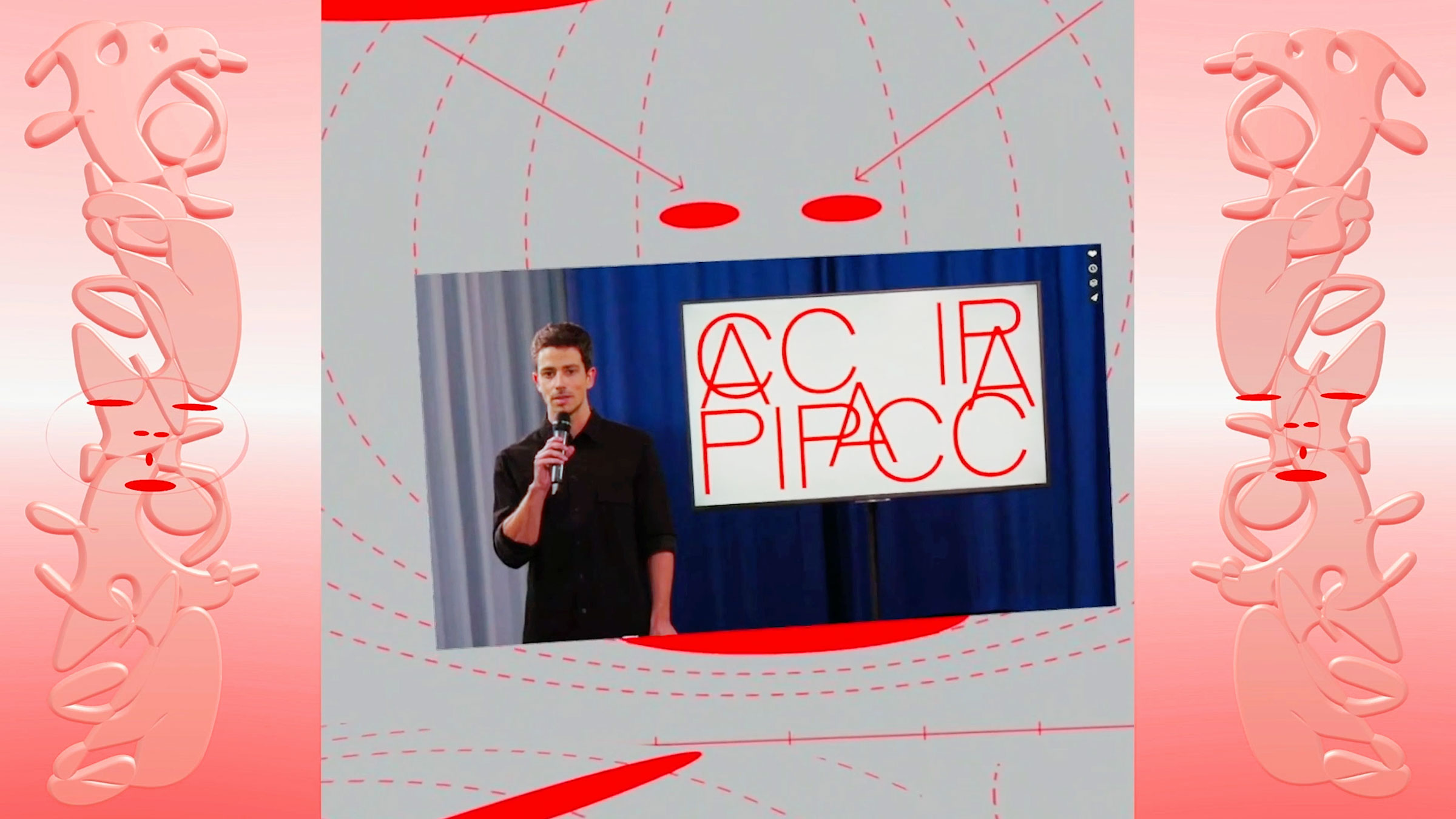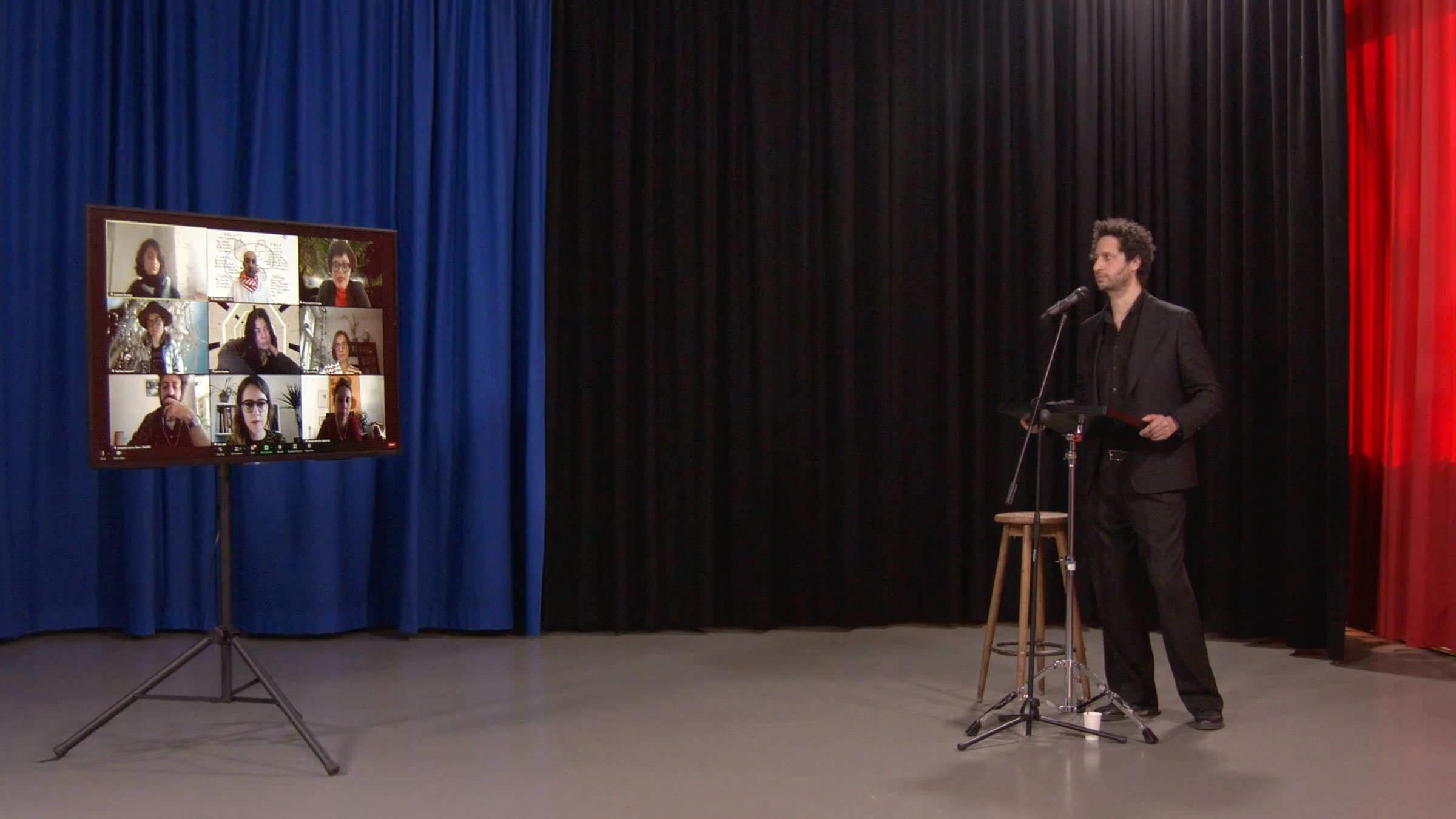The Intergovernmental Panel on Art and Climate Change (IPACC) is a fictional institution which refers to the Intergovernmental Panel on Climate Change (IPCC), the United Nations’ body assessing the science related to climate. Acknowledging that both the impacts of and solutions to climate change are deeply mediated by culture, the IPACC explores a stronger integration of the arts, social sciences and humanities within the interface between science and global policymaking. The project spanned two discursive events in consecutive years, happening in parallel to the unfolding IPCC’s 6th Assessment Cycle, a comprehensive review of the latest climate science.
In the first event, the IPACC was an object for discussion and an instigator of an exercise in long-term thinking beyond our current socio-political short-sightedness. The event started with a conversation with the IPCC’s vice-chairs Dr. Thelma Krug and Dr. Youba Sokona and presentations by philosopher Roman Krznaric and artist Carolina Caycedo. The following two days gathered professionals from the arts and beyond, divided in two groups: one enacting a fictional Present, and another embodying a generation 140 years in the Future. This role-play structure draws from the Japanese decision-making strategy Future Design, which departs from the seventh-generation principle of indigenous cultures, urging current societies to consider the interests of forthcoming generations.
The group of the Present (Fernando García-Dory, Nataša Petrešin-Bachelez, Suzanne Dhaliwal and Taru Elfving) departed from the fictional scenario that the IPCC wished to include arts and culture in their workings and thought prospectively on what these could add to the IPCC and how such a collaboration could happen. The Future generation (Ama Josephine Budge, Julieta Aranda, Pauliina Feodoroff and Prem Krishnamurthy) gave a retrospective evaluation of the IPACC’s importance and shortcomings on future societies and artistic practices. After separate round-tables, both groups joined forces in speculating how arts and culture could gain further traction in the discussion and action on the climate crisis.
IPACC - Intergovernmental Panel on Art and Climate Change
co-curated with Inga Lāce
25 - 27.02.2021
Jan van Eyck Academie, Maastricht, Netherlands
With contributions by:
Ama Josephine Budge, Carolina Caycedo, Fernando García-Dory, Hicham Khalidi, Julieta Aranda, Nataša Petrešin-Bachelez, Pauliina Feodoroff, Prem Krishnamurthy, Roman Krznaric, Suzanne Dhaliwal, Taru Elfving, and IPCC Vice-Chairs Dr. Thelma Krug & Dr. Youba Sokona.
Jan van Eyck participants (2020-21): Aliki van der Kruijs, Arvid&Marie, Asli Burger, Charlotte Lagro, David Habets, Manjot Kaur, Rudy Guedj & The Soft Protest Digest.
Watch the full event here, or a 1-hour synthesis here.
Download the project portfolio here.
